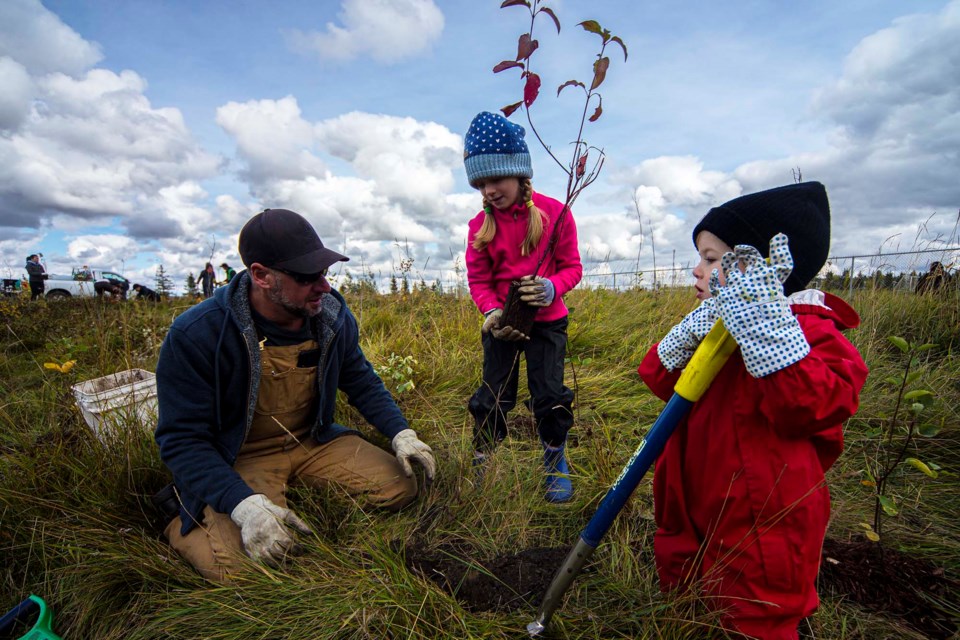There’s an old Middle Eastern story about a little bird who, when she heard the sky was falling, lay down on the trail on her back with her feet up. A horseman came thundering down the trail, stopped, and asked what the little bird was doing. “I heard the sky is falling and I’m helping to hold it up.”
“What can a little bird like you do?” the horseman replied. The bird replied, “I do what I can!”
The majority of scientists believe we are in a global crisis, the earth is getting warmer and we are polluting our world more and more. Weather patterns are changing; there is more flooding, more fires, and our oceans are full of plastic. Even in St. Albert, I notice changes. Fewer insect-eating song birds and fewer insects on my windshield when I drive. Could this be because of the widespread use of pesticides?
No, the sky is not falling, and while the problems are immense, each of us, like the little bird, can do something to help mitigate the crisis. We can do what we can.
And so, what can one person do? Take a look at what two young men have done regarding removing plastic in the oceans. They set up a company and had removed over six million pounds of plastic by 2017. Their work continues to this day. Look on their website: 4ocean.com, and you will be amazed.
Read Kevin Ma's recent Gazette series on plastic use. If each of us used one less plastic bag in a week in the Edmonton area, 52 million fewer bags a year would be used, many of which now go into the landfill. And why start with one a week? And why limit your impact on the environment with using fewer plastic bags?
How can gardening help the environment?
Waste is one problem. I read articles that state that up to 50 per cent of all food produced in the western world winds up in a landfill. And a significant amount is wasted in homes and restaurants. Gardening is a way of reducing waste. Food fresh from your garden not only tastes better, we are less likely to waste it. We use the odd sizes of vegetables never seen in our grocery stores. Where do the odd sizes go in the commercial world? Often into the landfill.
Gardening also reduces carbon emissions by reducing the costs of growing, processing, transporting and selling commercial food. Remember the little bird; each bit you do helps. You, like me, can learn by trial and error. Each year, you can do more – a bigger garden, and bigger and better vegetables. For example, I have read through 12 issues of Birds and Blooms about beautiful gardens. Every one started small and through trial and error developed their city lot or acreage over many years into a beautiful and productive garden. Start small and grow.
A study in the journal Science (reported in CBC’s What on Earth) said the best way to fight climate change is to plant at least a trillion trees worldwide. Some countries have undertaken ambitious goals. For example, Ethiopia plans to plant four billion by October. Here in St. Albert, you can plant a tree in your yard or perhaps you came out on Sept. 29 and helped plant up to 500 trees with the St. Albert Rotary Club in the Rotary Park.
Our environment is a legacy to be passed on to our children and our grandchildren and their children. Let’s hope they will thank you for what you have done for the environment. And so, be like the little bird, do what you can.
Charles Schroder is a St. Albert resident and an avid gardener.




